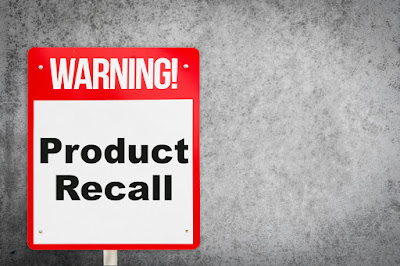Thursday, November 16, 2017
(CAR) T Chimeric Antigen Receptor T Cell Based Gene Therapy
After the approval of Kymriah in August 2017, with a price tag estimated to be $475,000, followed by Yescarta at $373,000, and more in the pipeline, it is now time to better understand Chimeric Antigen Receptor T cell therapy (CAR) T cell infusion therapy. This type of cancer therapy will replace the current high cost Specialty Drugs as a new industry of high pharmaceutical costs for payers.
Chimeric Antigen Receptor T cell therapy or (CAR) T is a type of treatment in which patient’s T cells, a type of immune cell, are taken from a patient’s own blood, and then genetically engineered to produce CAR-producing T cells. In the laboratory a gene for a special receptor, Chimeric Antigen Receptor, is inserted into the patient’s T Cells so that they will bind to a certain protein on the patient’s cancer cells. After millions of (CAR) T cells are grown in the laboratory, they are then infused into the patient’s body, where they further multiply and attack cancer cells.
On August 30th, 2017, the FDA approved Kymriah (tisagenlecleucal), the first (CAR) T cell therapy drug manufactured by Novartis. Kymriah is indicated for the treatment of patients up to 25 years of age with B-cell precursor acute lymphoblastic leukemia (ALL) that is refractory or in second or later relapse. It will be supplied through two (2) specialty distributors, and then shipped to one of only 32 treatment centers in the US that can administer this drug.
“The price for a single infusion of Kymriah does not include pre-infusion treatment costs, drug administration and hospitalization costs. When those costs are added, the average total cost….is estimated to be up to $750,000.”
http://www.onclive.com/web-exclusives/novartis-sets-a-price-of-475000-for-car-tcell-therapy
The second cell-based gene therapy, Yescarta (axicabtagene ciloleucel), was approved by the FDA on October 18th, 2017 and is manufactured by Kite Pharma, which was recently bought by Gilead, the makers of the Hepatitis C blockbuster, Harvoni. Yescarta will be used to treat certain types of Lymphoma, including Diffuse Large B-Cell Lymphoma (DLBCL), that have not responded to at least 2 prior therapies.
Each dose of Yescarta is a customized treatment created using a patient’s own immune system to help fight the lymphoma. The complete remission rate after treatment was 51 percent; however, treatment with Yescarta has the potential to cause severe side effects, including 3 reported deaths. The FDA is requiring that hospitals and their associated clinics be specially certified to dispense this drug. There are currently only 16 treatment certified centers, including Dana Farber and Sloan Kettering.
Diffuse large B-cell lymphoma (DLBCL) is the most common type of NHL (Non-Hodgkin’s Lymphoma) in adults. NHLs are cancers that begin in certain cells of the immune system and can be either fast-growing (aggressive) or slow-growing. Approximately 72,000 new cases of NHL are diagnosed in the U.S. each year.
There are 20 similar drugs currently in development by various pharmaceutical manufacturers. Novartis is studying CTL119, for multiple B-Cell malignancies, as well as therapies for leukemia, multiple myeloma, and solid tumors. Juno Therapeutics is developing several more, for multiple myeloma, and pediatric leukemia.
In just several decades, gene therapy has gone from being a promising concept to a practical solution to deadly and largely untreatable forms of cancer,” said FDA Commissioner Scott Gottlieb, M.D.
https://www.fda.gov/newsevents/newsroom/pressannouncements/ucm581216.htm
PBIRx has been exclusively providing intelligent solutions to clients in the management of pharmacy benefit costs since 1993. With a staff that includes IT personnel, actuaries, financial analysts, clinical pharmacists, attorneys, HIPAA Compliance Officers and many more experts, PBIRx’s mission is to create optimal health care outcomes while minimizing overall health care costs. For more information, please visit www.pbirx.com or call (888) 797-2479.
Thursday, November 9, 2017
Unifine Pentips Recall
PBIRx®
Intelligent Solutions in Pharmacy Benefits
12 Wheelers Farms Road, Milford, CT 06461
(888) 797-2479
Intelligent Solutions in Pharmacy Benefits
12 Wheelers Farms Road, Milford, CT 06461
(888) 797-2479
Any exposure to water or a device exposed in the end user packing could potentially compromise the sterilityThere may be yellowing or discoloring of the protective seal.
Owen Mumford has issued this recall as a precaution. There have been no complaints or adverse events reported as of November 3, 2017. Anyone in possession of these Unifine Pentips should discontinue use and contact Owen Mumford Customer Service Department at 1-800-421-6936 for return information.
PBIRx has been exclusively providing intelligent solutions to clients in the management of pharmacy benefit costs since 1993. With a staff that includes IT personnel, actuaries, financial analysts, clinical pharmacists, attorneys, HIPAA Compliance Officers and many more experts, PBIRx’s mission is to create optimal health care outcomes while minimizing overall health care costs. For more information, please visit www.pbirx.com or call (888) 797-2479.
Subscribe to:
Posts (Atom)


